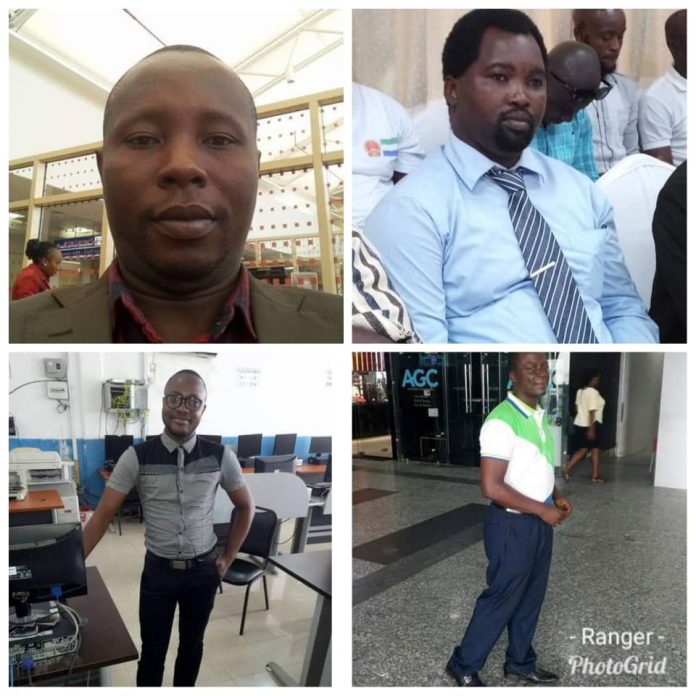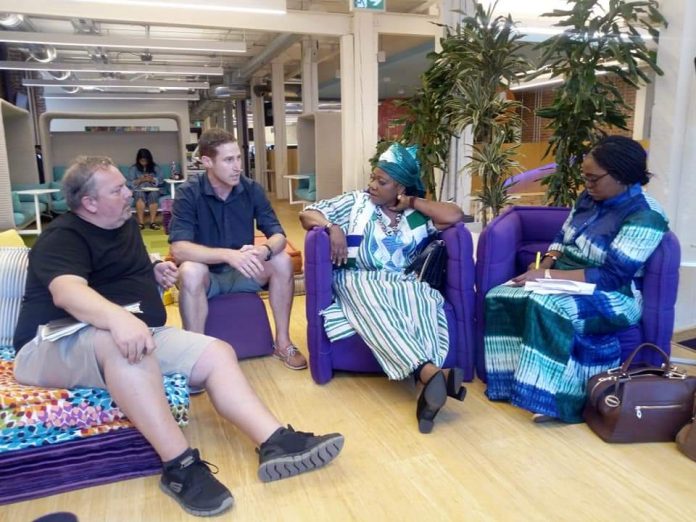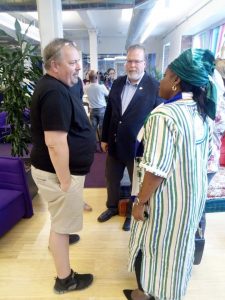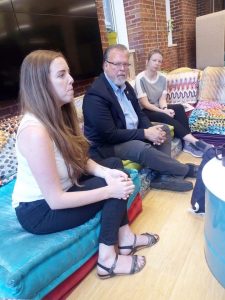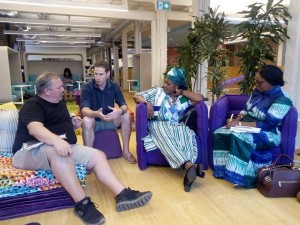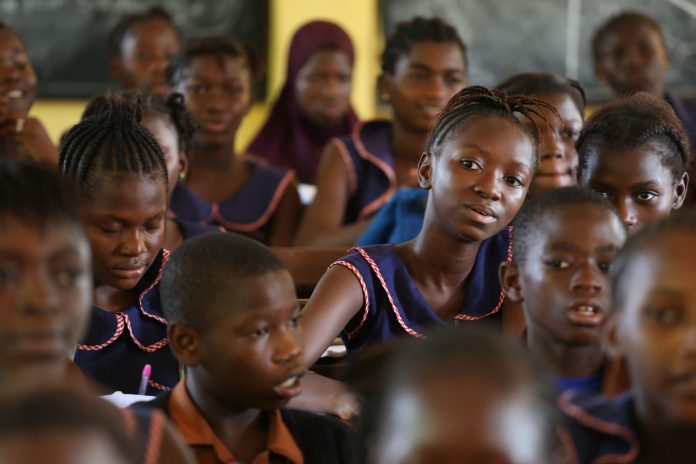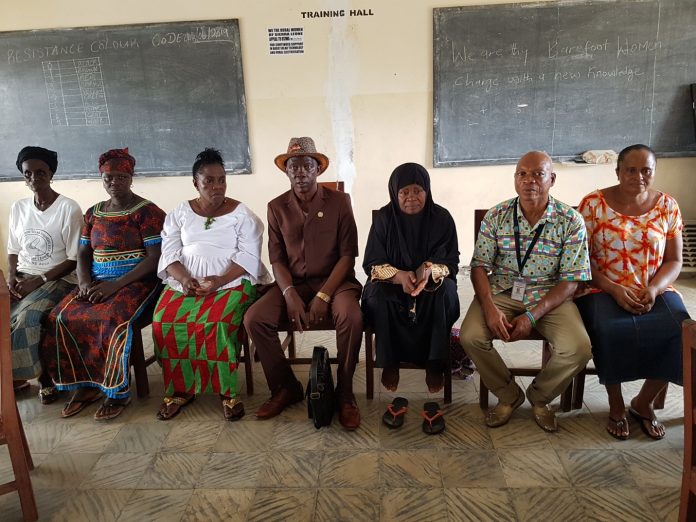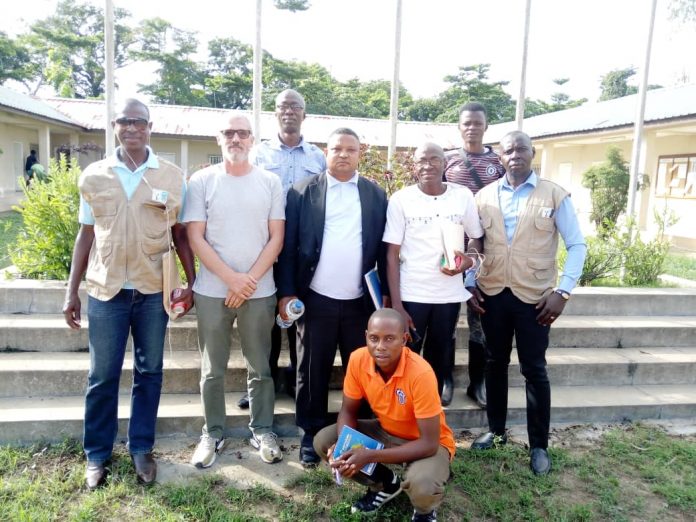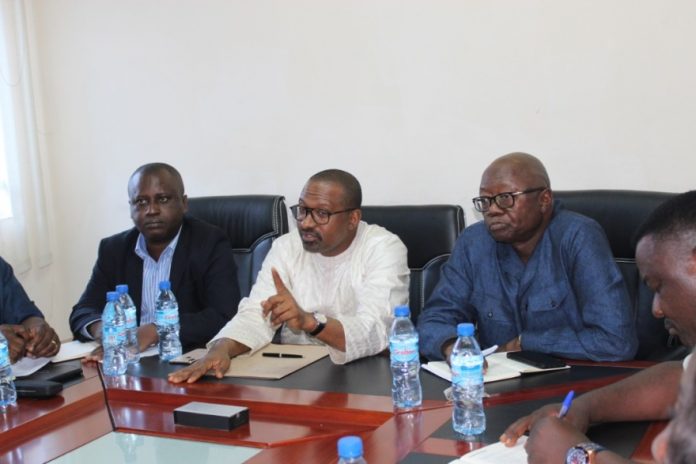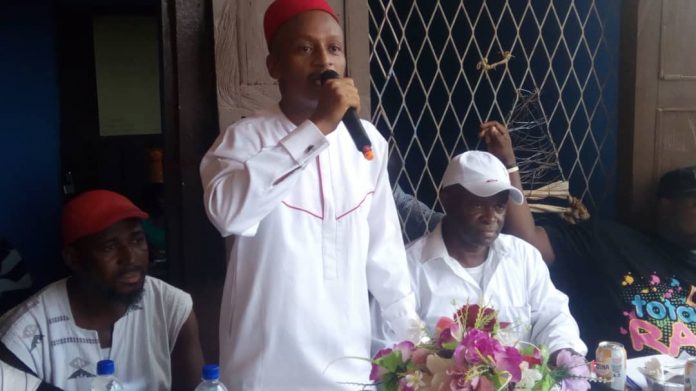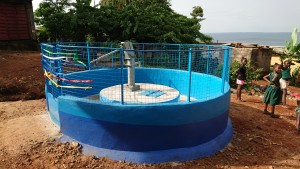It has been learnt that it is very challenging for Oil Marketing Companies (OMCs) in Sierra Leone unlike other African countries like Liberia, Gambia etc.that are selling their petroleum products above 9,000 Leones but for Sierra Leone the price still remains at Le7, 000 for petrol and Le 7,500 for diesel. This is why foreign exchange dealers are really challenged and for that reason foreign currency is not freely available to OMCs for them to continue the process of purchasing and selling.
Oil marketing companies in Sierra Leone that have been doing extremely well in terms of timely service delivery of petroleum products and customer care, are reportedly going through trying times, having recorded a massive loss from January to May 2019 to the tune of over Le 96 billion (ninety six billion Leones).
Kobi Walker, General Manager NP-Sierra Leone, speaking recently on Radio Democracy in an interview disclosed that one of the major factors that has been responsible for the present status quo antebellum is the fact that there has been a huge difference between the actual price of PLATTS and the average purchase price of USD $ to the Leone when matched against that of the Petroleum Regulatory Agency Pricing Formula.
According to him this is a big challenge that NP and the Government cannot handle. He said that it is very challenging for OMCs as other African countries like Liberia, Gambia etc. are selling their petroleum products above 9,000 Leones but he said for Sierra Leone the price still remains at Le7, 000 for patrol and Le 7,500 for diesel.
He also said foreign exchange owners are really challenged and for that reason foreign currency is not freely available for them to continue the process of purchasing and selling.
He also said looking at the current prices of petroleum products within the context that NP is subsidizing has further compounded the situation which he said is a contributory reason why they are encumbered with such huge losses highlighting how that is not their sole responsibility as a company.
He said that it is not their business to give subsidies and sell below what they are buying pinpointing how they will continue to supply their products regardless of the fact that they are making so many losses.
The GM disclosed that Sierra Leone is consuming over 400 million litres of fuel every year.
He added that if the price for fuel remains like this it will pose serious difficulties for the survival of OMCs but expressed optimism that they are sure to address the issues with the relevant stakeholders.
He went further to say the company cannot determine the increase in price of fuel as there is the Petroleum Regulatory Agency which is the regulator of OMCs.
“They have the onus to determine increase of prices having looked at the PLATTS, foreign exchange rates and other variables,” Kobi Walker posited, adding that they as a company cannot continue in the present manner but that the relevant stakeholders are seriously looking into the situation.
Against this background, it should be noted that for any government anywhere in the world to successfully govern and manage its economy well, it can only do so by actively engaging oil producing companies and giving them the necessary attention because as the saying goes: without energy, no development.
Needless to say, in Sierra Leone, the state of oil companies is such that oil companies operating in Sierra Leone will remain challenged if nothing is quickly done by the relevant authorities to address the quagmire in which these companies currently find themselves.
It is understandable that the whole country relies on petroleum products for progress and development to transpire. But what the oil companies are saying is that they are exposed to a lot of bottlenecks that greatly hamper their profitability and running costs in what is considered to be a highly volatile market that is subject to the vicissitudes of international economic forces.
Without any doubt, we all see how quickly the whole economy grinds to a halt whenever there is no fuel in petrol stations. People can no longer travel easily and cheaply from one place to another. The cost of transportation goes up and food prices shoot up as well affecting the smooth operations of industries, sometimes causing job loss.
As such, whilst we understand the financial stress that the government is going through, but at the same time, the government must keep in mind that it is a fact that survival of society depends on the availability of petroleum products in the market at all times.
The depreciation in the value of the Leone should not be a factor in the Central Bank prioritizing foreign exchange to oil companies at official exchange rate because fuel has a very huge multiplying effect on the rest of the economy, as well as vital for investor confidence.
Realistically, if the government cannot subsidize, then it should allow market forces to prevail so that the industry does not collapse.
As things now stand, oil marketing companies are suffering at the detriment of its own survival.
“If the current fiscal regime is not reviewed many companies including Sierra Leone’s fully indigenous National Petroleum Company will go down a painful and dreadful route,” stated Steven Williams, a Development Consultant. He added that sound policies must be urgently rolled out to ensure stability.
Williams maintained that it is regrettable that the company finds it extremely difficult to purchase US Dollars in the marketplace currently.
It is recommended therefore that the Central Bank develop a mechanism wherein foreign currency is provided for the oil marketing companies to enable them pay for badly-needed petroleum products.
Of course to promote transparency of goods that are brought into the country and required taxes that must be paid to Government the ASYCUDA digital software was introduced at the Port.
However, what was gathered from the conducted research was that the method of implementation of the ASYCUDA system has been negatively impacting Oil Marketing Companies for which it was recommended that the relevant authorities put in place measures to ensure seamless flow of products free of interruption and long delay at the Quay.
The current pricing formula dictates that the pump price of petroleum products be adjusted upwards or downwards periodically as and when the combined effect of the changes in world market prices (quoted in PLATTS) and the exchange rate (measured by the average selling rates quoted by the Oil Marketing Companies, commercial banks and Bank of Sierra Leone) causing a +/- 5% change in the Leone-based landed cost of the product (s).
It was noted that prices should be changed upwards or downwards in small increments that will not create panic in the market place. The way it is currently, allows for a big jump at any time which makes it difficult for Government to effect change at the right time.
It may interest readers to note that while a litre of fuel is sold at Le7, 000.00 here, in Guinea it is sold at Le9, 120.00, in Liberia it is Le9, 321.00, Ivory Coast sells at Le9, 244.20 and Ghana at Le 9,136.44.
Oil marketing companies are further encumbered with other charges that are not provided for in the price build up formula, and these include: Toll Gate fees, ASYCUDA processing fees, Environmental Protection Agency fees, storage fees and other fees imposed by the Petroleum Regulatory Agency.
Thus, the government to help the oil companies must review some of its policies especially those affecting vibrant companies in the country as well as ensuring that economic measures are rolled out in order for the value of the Leone to appreciate.
Failure to take drastic steps to protect locally owned companies will definitely lead to closure or restructuring with dire consequences that could take the form of labour downsizing, no-payment of taxes to government among other salient issues.

